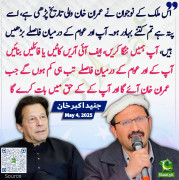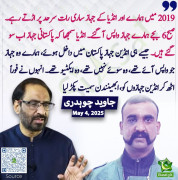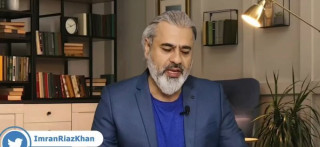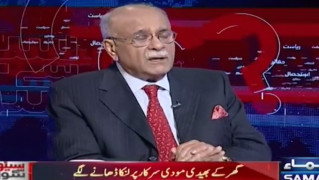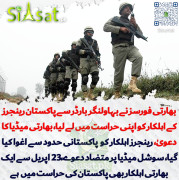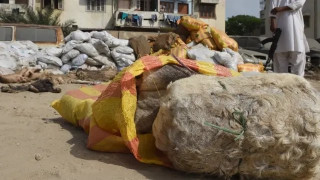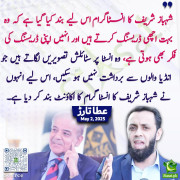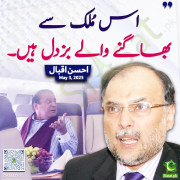hans
Banned
The International Crimes Tribunal (ICT) on Thursday took into cognisance the formal charges against Jamaat-e-Islami leader Delwar Hossain Sayedee in connection with crimes against humanity committed during the 1971 Liberation War.
V Clip is in Bangla language.
The prosecutors of the International Crimes Tribunal submitted formal charges against Jamaat-e-Islami leader Delwar Hossain Sayedee on Monday in connection with crimes against humanity.
The three-member tribunal headed by Justice Md Nizamul Huq fixed July 14 to hear the charges and decide whether to take the charges into cognisance or not.
Sayedee, a senior official of Jamaat-e-Islami, the country's largest Islamic party, has been accused of killing more than 50 people, torching villages, rape, looting and forcibly converting Hindus to Islam.
Sayedee, who was in court on Wednesday, has been held in detention since June 2010, along with four other war crimes suspects from Jamaat and two from the main opposition Bangladesh Nationalist Party (BNP).
Other suspects are expected to be charged and the trials are likely to last several months.

What is a war crime?
Article 147 of the Fourth Geneva Convention defines war crimes as: “Willful killing, torture or inhuman treatment, including… willfully causing great suffering or serious injury to body or health, unlawful deportation or transfer or unlawful confinement of a protected person, compelling a protected person to serve in the forces of a hostile power, or willfully depriving a protected person of the rights of fair and regular trial, …taking of hostages and extensive destruction and appropriation of property, not justified by military necessity and carried out unlawfully and wantonly.”
At the heart of the concept of war crimes is the idea that an individual can be held responsible for the actions of a country or that nation’s soldiers. Genocide, crimes against humanity, mistreatment of civilians or combatants during war can all fall under the category of war crimes. Genocide is the most severe of these crimes.
The body of laws that define a war crime are the Geneva Conventions and the statutes of the International Criminal Tribunal in The Hague
Forces Opposing Bangladesh Independence:
Regular Army : 80 000
Rangers and Militia : 24 000
Civilian Forces : 24 000
Razaker, Al-badar and Al-shams : 50 000 (estimated)
Pakistan armed Forces
Headquarter : Eastern Command
Chief Martial Law Administrator : Lt. Gen. Tikka Khan (March 6 to August 1971)
Lt. Gen. A. A. K Niazi (August to December 16, 1971)
Adviser : Major General Rao Farman Ali
Chief of Stuff : Brig. Bakar Siddiqi
Regional Chief : Major General Nazir Hossain Shah
Major General S H Ansari
Major General Rahim Khan
Peace Committee:
Established : April 1971
Convener : Khawza Khairuddin
Organizers : Prof. Golam Azam
A. Q. M Shafiqul Islam
Moulana Syed Masum
Razaker forces
Established : May 1971 (Khulna)
Ordinance : June 1971
Convener : Moulana A K M Yusuf
Director : A S M Zahrul Huq
Al-Badar and Al-Shams
Members of Islamic chhattra sangha, student wing of Jamat-e-Islam party
Top Razakars:
* Maulana Dawood
* Golam Azam
* Abdul Mannan
* Matiur Rahman Nizami, head of Chhatra Sangha, the students’ organization of Jamat-e-Islami
* Ali Ahsan Mohammad Mujahid – president of Al-Badr
* Delwar Hossain Saidi
* Moinuddin Chowdhury
* Anwar Zahid
* Fozlul Quader Chowdhury & Salahuddin Quader Chowdhury
* Abbas Ali Khan
* Mohammad Kamaruzzaman
* Abdul Alim
* Abdul Kader Mollah
* ASM Solaiman
* Maulana Abdus Sobhan
* Maulana AKM Yousuf
* Moulana SM Fazlul Karim
* Mohammad Ayen ud Din
* ABM Khalek Majumder
* Ashrafuzzaman Khan
* Dr. Syed Sazzad Hossain
List of Collaborators and War Criminals published by Muktizuddha Chetona Bikash Kendra, Dhaka, Bangladesh. (Source: [Book] Ekatturer Ghatokera Ke kothai)
<<<<<<<<<<<<<<<<>>>>>>>>>>>>>>>>>>
PRELUDE:
What if Delwar Hossain Sayedee, comes out and say what ever he did, right or wrong... instruction came from Pakistani Army.
So are we ready to stumble upon some very old rotten forgetting graves.
V Clip is in Bangla language.
The three-member tribunal headed by Justice Md Nizamul Huq fixed July 14 to hear the charges and decide whether to take the charges into cognisance or not.
Sayedee, a senior official of Jamaat-e-Islami, the country's largest Islamic party, has been accused of killing more than 50 people, torching villages, rape, looting and forcibly converting Hindus to Islam.
Sayedee, who was in court on Wednesday, has been held in detention since June 2010, along with four other war crimes suspects from Jamaat and two from the main opposition Bangladesh Nationalist Party (BNP).
Other suspects are expected to be charged and the trials are likely to last several months.

What is a war crime?
Article 147 of the Fourth Geneva Convention defines war crimes as: “Willful killing, torture or inhuman treatment, including… willfully causing great suffering or serious injury to body or health, unlawful deportation or transfer or unlawful confinement of a protected person, compelling a protected person to serve in the forces of a hostile power, or willfully depriving a protected person of the rights of fair and regular trial, …taking of hostages and extensive destruction and appropriation of property, not justified by military necessity and carried out unlawfully and wantonly.”
At the heart of the concept of war crimes is the idea that an individual can be held responsible for the actions of a country or that nation’s soldiers. Genocide, crimes against humanity, mistreatment of civilians or combatants during war can all fall under the category of war crimes. Genocide is the most severe of these crimes.
The body of laws that define a war crime are the Geneva Conventions and the statutes of the International Criminal Tribunal in The Hague
Forces Opposing Bangladesh Independence:
Regular Army : 80 000
Rangers and Militia : 24 000
Civilian Forces : 24 000
Razaker, Al-badar and Al-shams : 50 000 (estimated)
Pakistan armed Forces
Headquarter : Eastern Command
Chief Martial Law Administrator : Lt. Gen. Tikka Khan (March 6 to August 1971)
Lt. Gen. A. A. K Niazi (August to December 16, 1971)
Adviser : Major General Rao Farman Ali
Chief of Stuff : Brig. Bakar Siddiqi
Regional Chief : Major General Nazir Hossain Shah
Major General S H Ansari
Major General Rahim Khan
Peace Committee:
Established : April 1971
Convener : Khawza Khairuddin
Organizers : Prof. Golam Azam
A. Q. M Shafiqul Islam
Moulana Syed Masum
Razaker forces
Established : May 1971 (Khulna)
Ordinance : June 1971
Convener : Moulana A K M Yusuf
Director : A S M Zahrul Huq
Al-Badar and Al-Shams
Members of Islamic chhattra sangha, student wing of Jamat-e-Islam party
Top Razakars:
* Maulana Dawood
* Golam Azam
* Abdul Mannan
* Matiur Rahman Nizami, head of Chhatra Sangha, the students’ organization of Jamat-e-Islami
* Ali Ahsan Mohammad Mujahid – president of Al-Badr
* Delwar Hossain Saidi
* Moinuddin Chowdhury
* Anwar Zahid
* Fozlul Quader Chowdhury & Salahuddin Quader Chowdhury
* Abbas Ali Khan
* Mohammad Kamaruzzaman
* Abdul Alim
* Abdul Kader Mollah
* ASM Solaiman
* Maulana Abdus Sobhan
* Maulana AKM Yousuf
* Moulana SM Fazlul Karim
* Mohammad Ayen ud Din
* ABM Khalek Majumder
* Ashrafuzzaman Khan
* Dr. Syed Sazzad Hossain
List of Collaborators and War Criminals published by Muktizuddha Chetona Bikash Kendra, Dhaka, Bangladesh. (Source: [Book] Ekatturer Ghatokera Ke kothai)
<<<<<<<<<<<<<<<<>>>>>>>>>>>>>>>>>>
PRELUDE:
What if Delwar Hossain Sayedee, comes out and say what ever he did, right or wrong... instruction came from Pakistani Army.
So are we ready to stumble upon some very old rotten forgetting graves.
Last edited:

